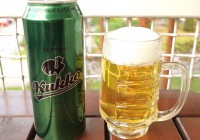Japanese Vocabulary list: Trains (電車) and related terms
Who doesn’t love trains, especially children? Even if you don’t love them, living in Japan (or other big cities) pretty much forces them to use them, so this list of train-related words is sure to be of use. 電車 (densha): train [this word is written with the Kanji for “electricity” and “car”, and thus… Read More »
